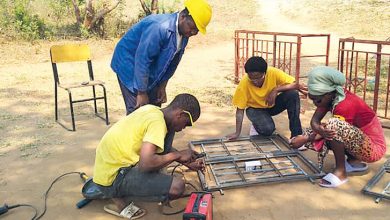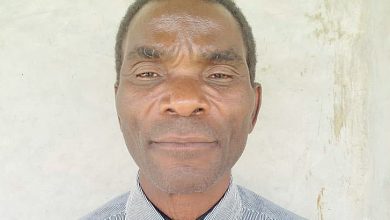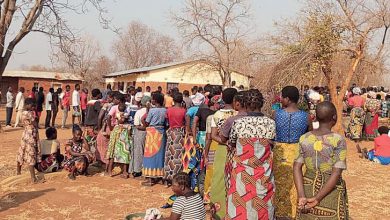Critics fault Chakwera over violence probe
President Lazarus Chakwera has come under fire from critics who have described as mere rhetoric his directive for an investigation into the violence that marred peaceful protests in Lilongwe on Thursday.
During the protests, unknown panga-wielding thugs severely assaulted activist Sylvester Namiwa together with other protesters in full view of police—an act that has received widespread condemnation, with the European Union threatening to withdraw aid.

The protests were aimed at forcing Malawi Electoral Commission (MEC) chairperson Annabel Mtalimanja—a Judge of the High Court of Malawi and chief elections officer Andrew Mpesi to resign.
But in separate interviews yesterday, critics argued that the President—who is currently in Nigeria for the 32nd African Export-Import Bank (Afrexim) Annual Meetings, would have firmly taken to task heads of law enforcement agencies in his capacity as Head of State.
They also argued that the President’s indecisiveness and inaction in previous reports cast doubts that he will strongly act against those implicated in the preliminary report he has since demanded.

Chakwera—in a statement condemning the violence against protesters posted on his official Facebook page yesterday morning—two days after the incident, said the right to protest peacefully is not only enshrined in the Constitution, but also a birthright.
“I have, therefore, directed all relevant State agencies to act swiftly and decisively to restore calm as well as to investigate what happened and ensure all those who violated the law are held accountable,” he said.
“As President, I will be expecting a preliminary report on findings from both the ministers of Homeland Security and Defence upon my return, which will form the basis of further actions we will take to ensure this does not happen again and that the 80 days between now and the election day are peaceful and violence-free.”
But in a telephone interview yesterday, Public Affairs Committee spokesperson Bishop Gilford Matonga said while Chakwera’s statement acknowledges that something was wrong, he faulted the approach he has taken.
He said: “We are concerned view, he would have called the Inspector General of Police and Army Commander directly demanding a report immediately because that is what is called taking duty-bearers to task.
“Otherwise making statements like that on social media makes Malawians doubt if the matter will be taken seriously because the people are expecting a lot from the leadership.”
During the protests, the unknown thugs also burnt two vehicles and stole a public address system.
Centre for Social Accountability and Transparency executive director Willy Kambwandira yesterday said Malawians cannot take Chakwera’s condemnation and subsequent directive seriously on the basis that his sentiments have mostly failed to match his actions.
He said: “There is generally a lack of concrete actions and the continued incidents of violence raise serious questions about the sincerity of his statement.
“Some people may view this as lack of serious actions as implicit tolerance or at minimum an unwillingness to charge violent actors who include masked militias and party youth wings. This effectively undermines the peace he is politically obligated to uphold.”
Kambwandira said it is, therefore, important for Chakwera to rise above petty politics and reprimand those involved.
Human Rights Defenders Coalition chairperson Gift Trapence on his part said what Malawians are looking forward to is not the preliminary report.
He said: “We need the police to arrest individuals who perpetrated this violence, including sponsors of this violence.
“If the President is serious in ending violence, some officers or officials who failed in their duties should be fired. Our democracy and the rule of law should be protected and that can only be done if we fight against impunity of police being spectators of violence.”
Ironically, days before the assault of protesters in Lilongwe on Thursday, a Joint Electoral Security Task Force met in Mangochi on Monday where they discussed security preparedness ahead of the September 16 2025 General Elections.
The task force consists of members from the Malawi Defence Force (MDF), Malawi Police Service, Malawi Prison Services, and the Department of Immigration and Citizenship Services.
It is being led by Major General Saiford Kalisha representing the MDF Commander, Inspector General of Police Merlyne Nachulu Yolamu, Malawi Prison Services Commissioner General Masauko Wiscot and Deputy Commissioner of Immigration and Citizenship Services Martha Gonondo.
Meanwhile, a concerned Malawian citizen—Promise Mhone, has written the International Criminal Court (ICC), asking it to investigate the violence, citing crimes against humanity.
In his submission to the Office of the ICC Prosecutor a day after the protests, he said such acts should not be taken lightly.
“We may differ in political affiliations, but we are all Malawians. There is no Malawi in Europe, Asia, America or Australia. This is our Malawi, this is our home country, this is mother Malawi,” reads the submissions.
In his submission to the ICC together with photographic evidence dated June 27 2025, Mhone described the assault on Namiwa as barbaric and undemocratic.
ICC confirmed receiving the submission as of Friday, according to an electronic copy which Nation on Sunday has seen.
When asked about the next step to be taken after the report, ICC spokesperson Fadi El Abdallah in an email response on Friday referred this reporter to the Office of the ICC Prosecutor.
He said: “Any information of that kind would eventually be submitted to the Office of the Prosecutor, if any. So, kindly contact directly his media team.”
But by press time at 5pm yesterday, we were yet to get a response from the Office of the ICC Prosecutor’s media office.
In its set-up, the ICC investigates and prosecutes heinous crimes of international concern, including genocide, war crimes, crimes against humanity and crimes of aggression.
The ICC—which was created to end impunity for those responsible for these heinous crimes, is governed by the Rome Statutes, which pertains to a treaty establishing the court.
Malawi signed the Rome Statutes on March 3 1999 and subsequently ratified it on September 19 2002, becoming the 81st member State of the ICC. This means the ICC is at liberty to investigate heinous crimes happening in Malawi.





